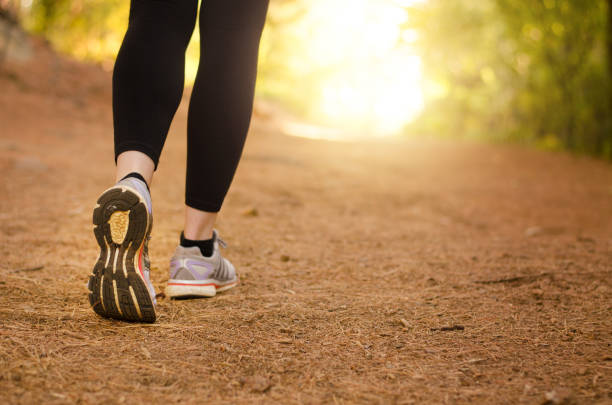 Walking is absolutely the most underrated form of movement, ever. People who walk more live longer (1). People who walk more are generally healthier (2). And, studies even show that people who walk more are just all-around happier about life (3)! Everyone knows that walking is a good idea. But ask yourself, how many people do you know who are actually incorporating it into their daily or weekly routine? My goal for today’s newsletter is to get you hyped about walking! To remind you that if you want to improve your mood, reduce your stress, get some mental space or clarity, or even improve your blood sugar, walking is absolutely your best friend! Today, we’re going to answer the following questions by looking at what the research says:
Walking Gives Us PerspectiveLike many of you, most of my work is done from my computer or phone these days, and sitting for long periods can make my brain (and body) feel static, which directly affects my productivity. Whenever I need some inspiration, a creative boost, or to recapture my focus, I’ll go for a brisk 5-minute walk around the block. I don’t do it all the time, but when I do, I always come back feeling sharper and ready to jump back into whatever I was doing. (Fun note, Brenden Bruchard conducted the largest survey ever of high performers and found that on average they take a quick break every 45 to 60 minutes.) Besides helping us hit the refresh button, going for a walk outside is a great time to practice gratitude and mindfulness. It’s also a perfect time to think about, or take a break from, whatever is weighing on us. When I’m feeling overwhelmed, walking provides me with a lot of clarity and equanimity. There’s actually a whole therapy inspired by walking called EMDR—ever heard of it? EMDR stands for Eye Movement Desensitization and Reprocessing, which has proven (that’s right, proven) to be an effective treatment for trauma and PTSD. What exactly is EMDR? An American psychologist named Dr. Francine Shapiro discovered EMDR one day when she realized that walking helped her process, understand, and better deal with the traumatic events going on in her life. This inspired her to create a whole new methodology and conduct her own research on EMDR in veterans with PTSD. She found that the bilateral eye movements (that’s when our eyes scan the horizon right to left or left to right) associated with walking helped desensitize traumatic memories. And the effect was noticeable after just one session (4). Now, EMDR is recognized as an effective adjunctive therapy for treating PTSD by the American Psychiatric Association and World Health Organization (5). Walking Improves Our Metabolic HealthI could go on and on about the benefits of walking for our well-being, but one of the main things I want to talk to you about today is how walking after meals can be a game-changer for your metabolic health, which is critical for living a long, happy, and healthy life, something we all deserve! Sadly 88 percent of Americans are metabolically unhealthy. Our Westernized diet and sedentary lifestyle are largely to blame (6). Refined starch and sugar account for 42 percent of Americans’ total energy intake, which mostly comes from the refined grains, flour, and sugar we’re getting from processed and packaged foods (7). These carbohydrates are absorbed super quickly and turn to sugar in the bloodstream. Now, our bodies can handle a blood sugar surge every now and then (that’s why we have insulin to bring our levels back down) but eating them as a staple in our diet keeps our blood glucose and insulin too high too often, putting our metabolic health in serious danger (7). Over time, this leads to insulin resistance, chronic inflammation, accumulation of belly fat, and increased risk for chronic disease. That’s the bad news. The good news? Walking after eating a carbohydrate-rich meal or drinking something sweet can significantly lower your blood glucose and insulin—but how? The Coke Experiment: How Walking Influences Blood GlucoseLevels (the continuous glucose monitoring company) tested out the effects of a post-meal walk on the blood glucose response of a few of their employees. Here’s how it went down: each participant (11 total) drank an entire can of Coke (39g of sugar, no judgment but yuck!) within an hour of waking up and then went for a walk immediately after. They walked anywhere from 30 minutes to 2 hours and measured their blood glucose response afterwards using their continuous glucose monitor. For the second part of the experiment, the participants drank a can of Coke under the same conditions (fasted) on a different day, but this time they didn’t move for two hours after. The results were astonishing! Walking had a 20% less blood glucose impact than being sedentary (130 mg/dL vs 160 mg/dL). There is literally no drug that exists on the planet that would have the same result! So what’s going on here for this effect to take place When you walk, your heart rate increases, your blood flow increases, and delivery of glucose to your muscle cells increases (8). Your muscles act like a sponge, soaking up the glucose in your bloodstream to power movement. Plus, your insulin sensitivity increases, so you need less insulin to absorb glucose (and less insulin is almost always a good thing) (8). Therefore, when you go for a walk after eating or drinking something sweet, the potential blood glucose spike is significantly blunted. On top of that, increasing insulin sensitivity reduces the likelihood of becoming insulin resistant. It’s important to mention that walking or doing any type of physical activity fasted doesn’t provide the same blood glucose and insulin regulating benefits as going for a walk after you eat. However, physical activity in a fasted state does help you burn fat. (more on this topic at another time) How Long Do I Have To Wait To Take My Walk After we eat, we enter the postprandial period, when our body is digesting, absorbing, and distributing nutrients to nourish and supply our tissues with fuel. How long the postprandial period lasts depends on what we’re eating. Quick absorbing, or simple carbohydrates (from refined flour, sugar, potatoes, or fruit smoothies) raise our blood sugar quickly and have a shorter postprandial period; whereas complex carbohydrates and fat are absorbed slowly and have a longer postprandial period (9)(10). Why is this relevant? Research shows that going for a walk can improve your blood glucose and insulin response any time during the postprandial period, up to six hours after eating (11). But the sweet spot seems to be around 30 to 45 minutes (12)(13). Most of the research points towards 30 minutes (when your blood sugar is rising) having the maximum blood glucose and insulin benefits (11)(12)(13). However, quick-absorbing carbs are going to increase your blood glucose almost instantly, so the sooner you can get moving the better (9)(12)(14). The 30-minute post-meal walk rule isn’t going to fit into everyone’s life, so if it works better for your schedule to go for one immediately after you eat (if you’re on your lunch break), that’s okay too! You’ll still be getting some benefits up to six hours after your meal (11)(14). So now that you know how long to wait before you get moving, I’m sure you’re wondering how long and how fast you have to walk to get the biggest bang for your buck. Duration & IntensityYou don’t have to be a marathon walker or a speed walker to get the benefits of walking. Heck, you don’t even need to reach a crazy high step goal. Sometimes, less is more. This study that came out of Duke University is a perfect example of this. Researchers measured oral glucose tolerance (how well your body responds to sugar) in prediabetics following a weight loss protocol that consisted of either diet, exercise, or both for six months. The “gold-standard” group followed a low-fat (yikes!), low-calorie diet and briskly walked 7.5 miles per week. The other groups did not follow a diet and either briskly walked 11.5 miles per week, 7.5 miles per week, or jogged 7.5 miles per week. The study found that people who walked 11.5 miles per week (that’s just over 1.5 miles a day) had nearly the same blood sugar impact as the gold-standard group (walking + diet) (15). These findings suggest that moderate-intensity exercise can have almost the same effect on blood sugar as dietary changes combined with exercise. Fascinating! What’s even more interesting is that the 11.5-mile group had a better outcome than participants who jogged 7.5 miles per week (15). How could this be? I thought running was the holy grail of cardio? Well, maybe not when it comes to keeping our blood sugar and insulin levels low, which is a pretty big deal when it comes to weight loss. Brisk walking after meals allows blood glucose to be absorbed by muscle cells without prompting additional production of glucose, which is best for keeping blood glucose levels in check. More intense workouts (80% intensity or higher) require anaerobic metabolism, which actually raises your blood sugar by tapping into your muscle and liver glycogen (stored glucose) (12). Releasing stored glucose to power your muscles isn’t a bad thing (there’s a time and place for high-intensity workouts), but it’s not the most desirable or necessary form of exercise we need if we’re looking to stabilize our blood glucose and insulin levels after a meal. What If I Don’t Have Time For A 30-Minute Walk?Going for a 30-minute walk after you eat isn’t always practical for everyone. If that’s you, I have some good news! Short bouts of walking throughout the day offer the same (or potentially even more) benefits for your postprandial glucose and insulin levels. Yes, you read that correctly. A randomized controlled trial published in the American Journal of Clinical Nutrition found that regular activity breaks (brisk walking for one minute and 40 seconds for a total of 30 minutes a day) resulted in significantly lower blood glucose and insulin than prolonged sitting (people who sat for nine straight hours a day) and people who took one 30 minute walk per day (16). Pretty cool, right? This shows that you can get the benefits of walking simply by breaking up long periods of sitting with a short, brisk walk. If you don’t have time for a 30-minute walk, getting up and walking around your office or house, to your mailbox, or taking a phone call on your feet walking around for a few minutes is enough to improve your metabolic health. In summary, the goal is to incorporate movement throughout your day in whatever way works best for you. If you have time for a 30-minute brisk walk after you eat, awesome. If the meal you just ate contains quick-absorbing simple carbs or refined sugar, the sooner you can get moving to curb the blood glucose spike, the better. The goal is not to go crazy walking after every single meal, the goal is to avoid being sedentary for long periods throughout the day. Carve out some time to go on a few post-meal walks throughout the week. If that’s not possible, or if your schedule doesn’t allow for it, get up and walk around for short bursts of time (about two minutes) throughout the day. I understand that it’s tough to make these changes all at once, but even just walking two hours a week can significantly lower your risk of all-cause mortality compared to nothing at all (17). Not only is walking great for your mental health, but your metabolic health will also thank you. My four-step protocol this week is designed to meet you where you’re at to get the most out of your walk. You don’t need anything for my protocol this week besides yourself and some comfy walking shoes (and maybe a loved one to join you!). Try ThisStep 1: Break up prolonged sitting The best way to make a change is to start slow and work your way up. Breaking up your day with two minutes of brisk walking is something that anybody can do and make time for. I’m happy that we live in a world where technology makes it easy for us to connect and work from just about anywhere, but being sedentary for long periods of time definitely isn’t doing our metabolic health, or mental health, any favors. Our great-great-grandparents would be dumbfounded by how much we sit throughout the day. And it’s not our fault. That’s the way most of us work and make a living these days. But our metabolic health doesn’t have to take a back seat to this sedentary lifestyle. We have the power to change it. The first step is awareness. When you feel like you’ve been sitting for too long, get up and take a quick two-minute break, briskly walk around, and then get back to it! In total, if you took 15 two-minute breaks per day (30 minutes of walking total) that would look like getting up and moving every half hour over an eight-hour workday. If it makes it easier, set a timer on your phone to remind yourself! Because my meetings often occur in 1-hour chunks, I’ll get up about every 60 minutes and walk for 4 to 5 minutes. Step 2: Take a walk around the block after dinner Sometimes I can get in a quick post-lunch or early morning walk, but if not, I know I have my after-dinner walk to fall back on. We are headed into spring! That alone helps me want to get out and see the world. I find that after dinner is a really awesome time to go for a walk because it tends to be the biggest meal of the day for a lot of people. Plus, when I go for a walk during the workday, it’s usually by myself, but when I go for a walk at night my husband will join me. Spending this time together is an awesome way for us to connect, talk about our day, and share whatever is on our minds. Some of the best conversations I’ve ever had with my husband, friends, family (even myself) have been when I’m outside walking. It’s not about steps or calories, so take the pressure off and try to use this time as an investment in your health and practicing presence. Step 3: More Advanced Option For those of you who are looking to level up your walking routine, try incorporating a long walk into your regular walking routine at least once or twice a week. For me, a long walk is about 45 to 60 minutes of brisk walking, but for you, it can mean anything you want! Sometimes I miss out on long walks because my schedule is too hectic or things come up that are more important, but I do love going on these long walks because they are an opportunity for me to practice mindfulness, gratitude, nature bathe, and have deep, meaningful conversations with the people I love. Step 4: Put a walking group together Making changes is much easier when we have someone to do it with. If you don’t have a consistent, reliable walking buddy, put together a walking group or community with people who have the same aspirations and goals as you do. Concluding Thoughts For your physical health, walking after a meal is a great way to keep your blood glucose stable, your insulin levels low, and set yourself up for optimal health. For our mental health, walking is also a fantastic way to ground yourself, clear your head, and get some perspective. Make a habit of taking a walk after your biggest meal. And try breaking up your day here and there with a super quick and super short walk. Lastly, walking is so much more fun when we do it with someone else. Setup a recurring calendar invite and invite a close friend or a loved one to take a longer walk with you once a week. Walking does wonders for our health and almost all of us could use more of it in our lives. It’s completely free and has an immediate impact on transforming our biology. What more could you ask for?
0 Comments
2/24/2020 0 Comments The Wonder of BerriesBerries are a saving grace! According to Anthony Williams book "Life Changing Foods" The medical medium states that their main power comes from antioxidants, the miracle fighters of free radicals. Antioxidants mean life, while oxidation means death. We need these antioxidants to fight the aging (oxidation) process, and to stay alive in the face of constant threats to our health. Berries broadcast their value with their deep purples, blues, and blacks, which come from the polyphenols. They're also rich in resveratrol and dozen of other phytochemical, amino acids, vitamin and minerals that give zest to life. Some of the ways they affect the body according to Anthony is the fact that they are true brain food. Not only are they B12-enhancing; they have the power to reverse stains on the brain. Also when you think of heart health, think berries. Nothing compares to the way berries protect heat valves and ventricles and remove plaque by dissolving hardened fat deposits within veins and arteries. The humble berry reigns supreme for keeping people out of the cardiologist's office.
So today experiment with your own health and see what adding these small but powerful food to your daily routine of eating can do for your health. A few ideas of how to incorporate berries in your life: * Eating your favorite berries shortly after sunrise will boost your energy and vitality throughout the day. * Grazing between meals with some handfuls of berries can raise your body's frequency to bring you to a more positive, peaceful state. * Berries can be added to a green salad, or a bowl of oatmeal. * Add berries to pancakes, muffins and breads. * Make a smoothie with cups of berries * Make a dessert of a bowl of berries and a dollop of whipped cream. 1/17/2020 1 Comment LOVE THE SKIN YOUR INWinter is a tough time for skin. The dry, heated air that cracks our vulnerable skin when we are indoors combines with whipping cold winds that chaff skin when we are outside… …absolutely no fun if you suffer from chronic skin conditions such as psoriasis, eczema or other forms of dermatitis. The very moment you turn on the heat… yes, even heat from natural heat sources such as wood burning stoves or gas fireplaces… the air dehumidifies and the skin begins to dry out. Another reason skin gets a double whammy in winter is that not only are the elements harsher and more dehydrating both inside and outside, but we tend to ignore and neglect our skin because it is not on display. While there are constant discussions, advertisements and products everywhere in the summer to remind us to protect skin from excessive UV exposure, to moisturize our skin, and constant reminder to drink more water in the hot summer months, we tend to completely neglect our skin in the winter. Out of sight, out of mind! But this neglect is hard on us… our skin is the largest organ we have! Our body is in a constant state of stress trying to repair this organ system if we neglect it. So right now is the perfect time for a little extra TLC for our skin. Any skin that has a compromise in the skin barrier function needs the ultimate TLC above and beyond regular skin care needs. This is especially important in the winter, as any crack in the barrier of our skin can invite inflammation, lead to infection, and even lead to scarring. To make it through winter with the best skin possible, I recommend these 10 all natural, holistic skin care steps, in addition to any skin care steps your physician or dermatologist recommends to treat your unique skin issues. My 10 Favorite Winter Skin Care Tips: 1. Protect your skin while outdoors: Invest in a in a good pair of gloves to shield your hands from harsh winter elements and a soft scarf to wrap around your delicate nose and lips to prevent windburn and chapping before it begins. 2. Exfoliate with baking soda or dry brush your skin: Many of us stop exfoliating in winter as our skin isn’t on show as much. But giving your skin a quick daily or even just a weekly exfoliation will sweep away dead skin cells and allow your skin to better absorb your moisturizer afterwards as well. To exfoliate, simply make a paste by mixing baking soda and a little water in the palm of your hand and us it to gently scrub your skin to remove dead skin cells, or alternatively you can dry brush your skin using a natural bristled brush before stepping in the shower or bath. 3. Soak in honey: Add a half cup of honey to your bath water to nourish your skin and speed the healing of any winter whipped irritations. Honey is all natural, anti-fungal and anti-bacterial, accelerates wound healing and decreases the risk of scarring…. making it the perfect skin supportive, holistic bath soak! And use warm, not hot water when you bathe. Even though it is tempting to blast hot water in the shower to warm up, the extra heat strips the skin of its oils more quickly. Keep the bath or shower warm, not hot, stay in the water for less time, and decrease the frequency of your bathing in the winter months. 4. Slather on coconut oil as a whole body moisturizer twice daily: Morning and night, especially after bathing, use a beautiful, all natural, super healing organic oil directly on skin such as coconut oil or sunflower seed oil (my two favs that are both medically shown to repair the lipid bilayer best.). Oil seals in moisture better than a lotion or cream which both are water based and will not protect skin the way a pure oil will. 5. Protect your nasal mucosa with a humidifier + apply coconut oil to the interior rim of your nose: Humidifying room air and keeping well-hydrated internally by drinking water copiously will prevent the tendency to develop chapped tight skin and dry, uncomfortable nasal passages. If you only have one humidifier, place it in your bedroom so that you can sleep in a moisturized environment at night. You can also apply a little coconut oil just inside the nasal openings to help protect your nasal mucosa from drying out! 6. Make organic coconut oil lip balm to use throughout the day: It’s so easy to whip up your own homemade lip protection, it takes less then one minute and you can even use it as an intensive hand and foot salve. Simply melt 2 parts coconut oil with one part beeswax (for example, 2 TBSP coconut oil and 1 TBSP beeswax) in a microwave or over a double broiler. Stir and add a few drops of Vit E (I simply snip the end off of a capsule of Vit E and squeeze it right in) and stir again. You can add a drop or two of honey for sweetness (and honey is incredibly skin supportive as a topical treatment for wound healing) and pour the mixture into a clean, recycled container or small jar. Empty skincare jars or mint tins work well. Use liberally to protect your lips and save them from winter dryness! 7. Moisturize skin from within: If you are not internally hydrating your body, there is no amount of external moisturizer you can put on your skin that will effectively hydrate it. So all winter long, drink lots of pure, filtered water all day, every day. Even though it’s so much easier to remember to stay hydrated in the summer when we are hot and sweating, please don’t ignore your hydration status in the winter when it is every bit as crucial, if not more so. Dry skin is dehydrated skin. You can also support your skin by eating foods rich in healthy fats that supply your skin with the essential vital nutrients it needs to maintain its crucial lipid bilayer. Take care to consume foods such as olive oil, coconut oil, avocados, walnuts, almonds, pecans, cashews, pistachios, macadamia nuts, pumpkin seeds, sunflower seeds, sesame seeds, chia seeds, fish, flaxseed and kelp all winter long. 8. Take high quality Omega 3 supplements daily: Drinking water and eating healthy fats in the winter may not be enough to maintain a healthy skin lipid bilayer, especially if you are prone to dry skin, psoriasis or eczema. I highly recommend taking a high quality Omega 3 supplement daily (for so many reasons, from preserving brain volume to decreasing ADHD symptoms to supporting heart health to keeping your skin supple.) 9. Extra sleep: Take advantage of the longer nights, the soft indirect lighting of winter and the natural urge to hibernate more to repair your sleep deficit and stock up on restorative beauty sleep. This decreases the stress on your body from the inside and out, allows your skin to repair more easily, giving your complexion a natural boost! 10. Re-evaluate your boundaries:
Your skin is always speaking to you. Skin can speak subtly through chronic messages that it whispers to you your entire life… or skin can scream loudly and angrily during acute transitions and times of crisis. Because our skin replicates so quickly, it is a wonderful mirror for what is going on with the rest of our body and mind:
And because it covers our entire body, every thought we think and every word we say and every intention we ever have passes through our skin on its way to communicate with the outside world. So it doesn’t just protect us from the world… quite the opposite is true too: it translates our inner being to the surface. It shows the world what is going on inside of us. It is constantly in contact with and intimate with our inner workings. Because of this, skin reflects how we feel about ourselves. Skin forms our barrier, our identity. It forms what we perceive as *us* and delineates *us* from *the rest of the world*. Skin is our outer projection of our inner truths. 11/22/2019 0 Comments Be Grateful Every DayDiscover something daily that makes you grateful and become witness to your life transforming.
Our lives are rich with potential sources of happiness, but sometimes we become victims of negative thinking because we believe that focusing on all that has gone wrong will provide us with the motivation we need to face the challenges of survival. When we choose to focus on what we are grateful for, a shift occurs in the fabric of our existence. Finding something to be grateful about every single day can help this shift take place. The vantage points from which we view the world are brought into balance, and we can see that being alive truly is a gift to be savored. There is always something we can be grateful about--it is simply up to us to identify it. On one day, we may find gratitude in a momentous, life-changing event such as a marriage or the birth of a child. On another day, the gratefulness we experience may be a product of our appreciation of a particularly well-made meal or how the sun shines on a leaf. If we discover that we literally cannot call to mind a single grateful element of existence, we should examine the cause of the blockage standing between us and experiencing happiness. Keeping a gratitude journal is a wonderful way to catalog the happiness unfolding all around us so that joy has myriad opportunities to manifest itself in our lives. Writing about the emotions we experience while contemplating joy may give us insight into the factors compelling us to resist it. Gratitude may not always come easily into your life. You have likely been conditioned to believe that the proper response to unmet expectations is one of sadness, anger, guilt, or fear. To make gratitude a fixture in your existence, you must first accept that it is within your power to choose happiness over unhappiness every single day. Then, each time you discover some new source of happiness, the notion that the world is a happy place will find its way more deeply into your heart. On this day, find one thing to be grateful about and let it fill your heart. 9/4/2019 2 Comments Making AgreementsMY AGREEMENTS ARE LIKE SEEDS IN THE WORLD. As you consistently keep your agreements with yourself and others, you build your power and develop momentum. When you always do what you say you're going to do, you dependably turn intention into reality. Day after day, you state the truth before it happens. God knows how to support such and individual. Moreover, when you keep your agreements, your mind settles down. It is less likely to obstruct the deliver of the circumstances you request because your mind learns it can trust you to follow through on what you set forth. Like any good gardener, you don't simply scatter seeds and walk away. You enrich the soil over years by honoring your environment and keeping your word. You dig holes for your seeds by feeling into yourself to ensure that your agreements are aligned with your heart. You water and shine your light on your seedlings by giving your agreements your enthusiastic presence. And you pull the weeds around them by withdrawing your energy from distractions that compromise your focus. I CHOOSE TO BE INTENTIONAL AROUND MAKING AGREEMENTS. Clarity around agreements is an essential part of building trust in yourself and honoring your word. Ambiguity makes for a weak foundation. If you aren't crystal clear, you may not know how to full-fill an agreement. You many not even know if you have an agreement. Keep a clean mind. Define for yourself what exactly constitutes an agreement. Bring your consciousness to every new agreement. Make sure it's something you can earnestly devote yourself to and that you fully intend to keep. Don't make an agreement if your heart's not in it.Finally, being intentional with your agreements means treating them not as mere obligations but opportunities to enthusiastically demonstrate your integrity and the power of your word. 8/23/2019 1 Comment 5 things to Journal about and whyThere is so much research about the benefits of journaling: stress relief, sparks creativity, improves confidence, helps with conflict resolution, improves writing, boosts memory, increases emotional intelligence, helps achieve goals, evokes mindfulness, improves health and healing, and makes you smarter.
But sitting down with a blank sheet of paper and expecting to pour oneself through the pen can be a bit daunting for even the most inspired writer. To help you get through that first step of putting pen to paper I’ve made a list of 5 things you can journal about and why. Write about goals and progress on goals Pro tip: You’re way more likely to achieve your goals if you simply write them down. The process of writing your goals signals to your brain that they are important and then your brain organizes and prioritizes based on that information. By journaling about your goals you not only are able to clarify what you’re really going for, you’re also able to expand upon them and push yourself to dream even bigger. Write about all of the details of how it will feel to achieve the goal, what it will look like, and the affect it will have on your and your loved ones. Then, write about your progress as you move forward so you can notice that you are evolving and expanding. This helps propel you toward your goal even more because you see the momentum that’s building and ride that wave to completion. Explore and resolve challenging experiences and emotions We all face difficult times in our lives and relationships, but it’s what we do during these times that make the biggest difference in our overall happiness. Journaling is a great way to relieve the stress of these situations and put things into context so we can process and release. Just putting the experience and accompanying emotions into words makes the experience knowable, and therefore manageable. Start by just getting it all out – even if it’s illegible and nonsensical. Don’t censor or edit yourself, just be in the ick and let it out. Once you’ve moved through the surface feelings and emotions, dive into the deeper layers of what’s really going on for you. Try seeing things objectively and write down your observations about your thoughts, emotions, and behaviors. Forgive yourself, and anyone else involved, for the confusion, hurt, and struggle. Then see if you can find a lesson or an opportunity for growth for yourself in this situation and journal about what that would look for you. Lastly, answer this question: How would I move forward in this situation from my deepest values and highest Self? Self reflection Use your journal to tap into what’s going on with yourself. Where are you at? How are you feeling? What’s going on for you? Getting your musings, ideas, and feelings onto paper help you to understand and assimilate them so you can move forward with more grace and joy. Imagine you’re talking with a really good friend that won’t judge you at all for any of your thoughts or feelings and just write. If you get stuck it might be helpful to go through some of the major categories of your life and reflect upon how you’re feeling about them: friendships, livelihood and impact, health, romantic relationship, creativity, community, play, and spiritual health. Don’t be afraid to go deep. Ask yourself the questions you’re afraid to ask. Get to know yourself. Develop your intuition Journaling is like speaking to yourself and listening at the same time. If you have any concerns, issues, or questions write them down and request your unconscious to come on board while you’re meditating or sleeping to bring you answers beyond your normal awareness. Then when you’re done meditating or when you awaken immediate write for ten minutes about any breakthroughs or revelations. You might be surprised what creativity and inspiration come to you! Reflect on the positive things in your life Journaling about a positive experience lets your mind relive it, which boosts confidence in your ability to create happiness. Start by just making a list of five things that you’re grateful for today. As you do this, you’ll become aware of awesomeness that is already present in your life. Practice being as present as possible with these pieces of joy in life. Writing about the good things changes your orientation from scarcity and stress to abundance and peace, simply by shifting your focus. Journaling is a super valuable practice in any amount, but making it a habit that you do every day creates profound change. If you’re feeling stuck around what to write about – try one of these five things and if none of them are calling you, just set a timer for five minutes, put your pen to paper, and write without stopping. Yes, some of what comes out will be craziness, and that’s okay! The point isn’t to write for the entertainment of others, it’s to provide an outlet for you to express, release, and reflect. 8/14/2019 1 Comment Energize Your BodyENERGIZE YOUR BODY
Three Realistic Practices for Health and Vitality Your body is the only thing you are guaranteed to keep for a lifetime. It forms the foundation of your earthly existence. Energizing your body enriches your life by enhancing every human capacity . If you lack vitality, nothing else really matters; if you have your health anything is possible. If you don't take care of your body, where will you live? A Foundation for Life If you haven't yet achieved optimal energy, vitality, and health, it is not because you haven't read or heard good advice on the topic,. Consider these words from Dr. Kenzo Futagil, M.D., who reached the century mark: "Eat less and chew well; ride less and walk often; have fewer clothes and launder often; worry less and work harder; waste less time and continue to learn; speak less and listen more; frown less and laugh more; complain less and appreciate more; take less and give more." Few of us would disagree with such advice, but how many of us can remember it much less incorporate all that into our lives? Good advice isn't enough. Because it's not about what we know, but about what we actually do (nearly) every day. Here's an example: Take one slow, deep breath -- as slowly and deeply as you can, without strain, first expanding your belly, and then your chest, and feel yourself relax as you slowly exhale. In the same manner, take two more deep breaths before proceeding. And from now on, for the rest of your life, take at least one deep, deliberate breath every hour. Take a nice deep breath right now and you've begun -- you've hardly stepped into the key and you have already learned an energizing practice for life. Back to the Body Many of us have a love-hate relationship with our bodies; we indulge them, deprive them, stuff them or starve them, overwork and underwork them, spoil them, punish them, enjoy them, suffer them, and, at times, feel betrayed by them. How many of us wish to fly free of our physical mortality, to travel out of our bodies before we've fully gotten into them . Energize Your Body begins by making peace with and coming to love and admire the body you've been given. In fact, your body is the only thing you are guaranteed to keep for an entire lifetime. You can't say that about your spouse, children, home, car, money, or beliefs -- only your body. It is your only real possession, so it pays to treat it well. If you do so, many other things fall into place. No matter where our flights of fancy take us, we return to a fundamental truth: The human journey begins and ends with the body. Reflections on Your Body: The following questions are intended to stimulate reflection on health, priorities, and energy in everyday life.
Energy is the most abundant substance in the universe; in fact it is the universe. You are made of energy; you take it in at the gross levels from the food you eat, and on more refined levels, from the air you breathe and from the people and natural world around you. Why, then, do we feel so little energy at times? The two most common reasons are physical (related to exercise, diet, and rest) and psychological (a lack of excitement or sense of purpose). The key to managing your physical energy is actually three-fold:
4/16/2019 0 Comments Family Dinner TimeApparently it’s not only me who thinks family dinners are important because according to The Family Dinner Project, some of the research-backed benefits of family meals include:
In fact, dining and preparing the meal together as a family is so important that the Founder and CEO of Tessemae’s, Greg Vetter, recently did a Tedx Talk titled “The Dinner Habit: The Recipe for Change,” that you can watch here. The kitchen is the heart of the home. If the kitchen is the heart of the home then why am I so often the only one in the kitchen when it comes time to prepare a meal? I’ve been asking myself that question a lot lately and what it comes down to is time. We’re all short of time at our house, which means I’m often trying to do things as fast and as efficiently as possible. And if you’ve ever cooked for your family you know that isn’t the fastest or most efficient way to get dinner on the table. But I know it’s worth the time and the effort. Pardon me while I pull out my soapbox here, but by not involving our children (or partners, spouses, roommates, friends, etc.) in preparing a meal we’re doing them a great disservice. I believe that everyone should have the skills to cook a meal and that if we give our families anything in life, it should be this skill. That’s why I’m now re-committing to preparing one meal a week with my spouse and family when possible in addition to our regular family meals. Even when life is busy! It’s just that important. 4/9/2019 0 Comments Mindfulness and Anxiety It is hard to believe that something so beautiful in its simplicity could be so powerful, but that’s exactly what mindfulness is, and now science can’t stop talking about it. Mindfulness is an ancient art and up until relatively recently, it has managed to escape the research spotlight. That’s probably not too surprising – The research is growing like crazy and though there’s still a lot we don’t know, one of the things we do know is that mindfulness has a profound capacity to heal and strengthen the brain against anxiety. Research that analyzed 19 separate mindfulness/anxiety studies found that mindfulness was ‘associated with robust and substantial reductions in symptoms of anxiety.’ In fact, mindfulness was found to be as effective for anxiety as cognitive behavior therapy – one of the most popular treatments for anxiety. What is mindfulness? Mindfulness is a process that leads to a mental state characterized by nonjudgmental awareness of the present experiences, such as sensations, thoughts, bodily states, and the environment. It enables us to distance ourselves from our thoughts and feelings without labeling them as good or bad. How Does Mindfulness Work? By focusing our attention on the present moment, mindfulness counteracts rumination and worrying. Worrying about the future (e.g. I better remember to pay those bills and clean my house this weekend) and ruminating about the past (e.g., I should have done this rather than that) are generally maladaptive thinking processes. Of course, it is important to learn from our past and plan ahead for the future; however, when we spend too much time outside of the present moment, we can get depressed and anxious. In such cases, mindfulness can be an important tool for helping us to better focus on the present moment. Research has shown that mindfulness helps us reduce anxiety and depression. Mindfulness teaches us how to respond to stress with awareness of what is happening in the present moment, rather than simply acting instinctively, unaware of what emotions or motives may be driving that decision. By teaching awareness for one's physical and mental state in the moment, mindfulness allows for more adaptive reactions to difficult situations. Mindfulness works through a number of ways. It encourages us to open up and accept our emotions. As a result we are better able to identify, experience, and process our emotions. Mindfulness also encourages us to see things from different perspectives. For example, if your spouse snaps at you, you might blame yourself and worry that you've done something to upset him/her. If you are able to distance yourself from your immediate response of being hurt, you might remember that your spouse mentioned a hard day at work, and perhaps they snapped at you because they're tired and stressed out. This new interpretation could alleviate some of your worry and negative feelings. The practice of mindfulness has been shown to benefit the following areas:
There are many practices that include mindfulness trainings, such as tai chi, yoga, and zen. There are many styles for each of these activities, so it is worthwhile to experiment with different practices until you find one that suits you. As you become more mindful, you will also notice that you will become more centered, happier, and less depressed and this in turn has a direct positive effect on your anxiety. How to be Mindful Right NowFocus on your breath for a few minutes. Feel your chest rise and fall, notice the sensation of the breath as it enters and exits your nose. When your mind wanders, simply return your attention to the breath. Focus on the present moment: the here and now. Notice this very moment; it feels good to be alive, right now. If you don't immediately feel a complete release of anxiety, remember: most of the benefits of mindfulness require consistent practice. While some changes bolster against anxiety even after one single yoga class, most benefits require several weeks, months, and even years to create a noticeable change. And, like any skill, you will need to continue to practice mindfulness after you start to maintain the improvements. Interested in participating in a research treatment study for anxiety? Visit gatestudy.org for more information. |
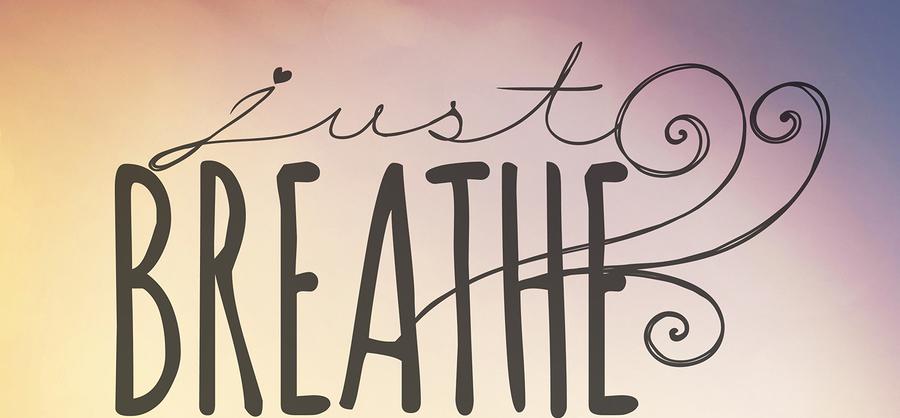
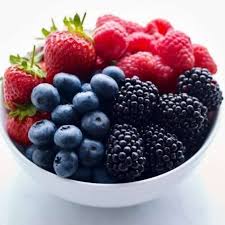


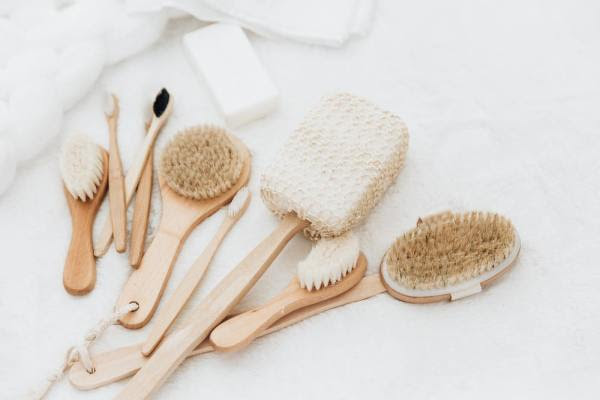
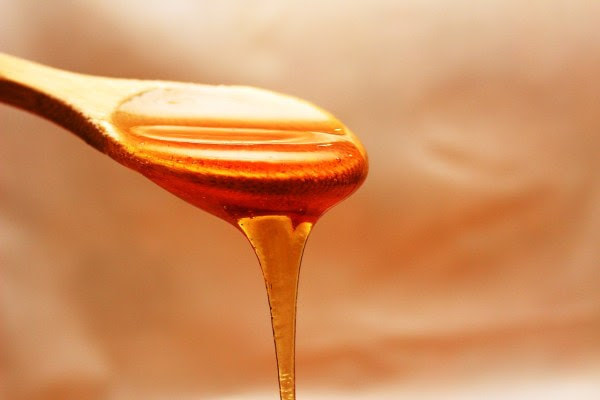
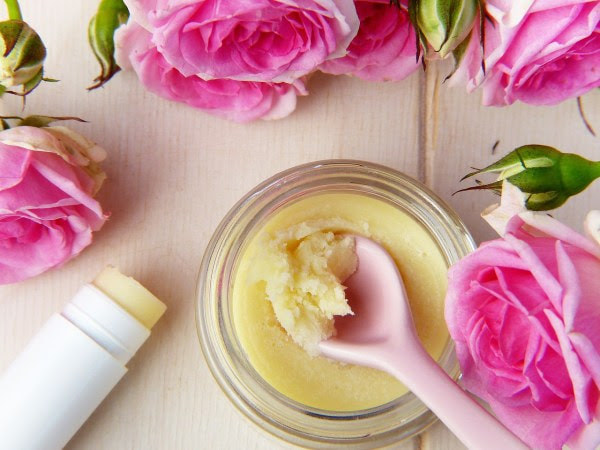
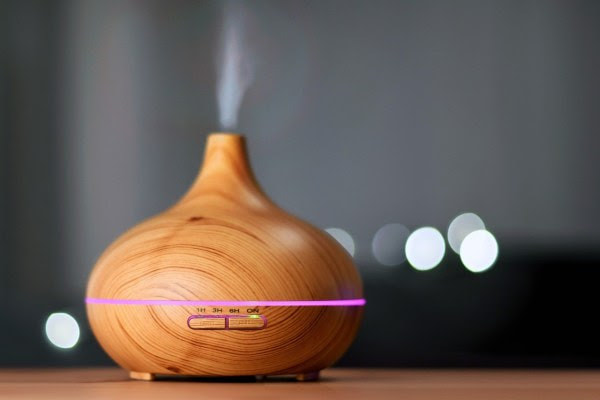
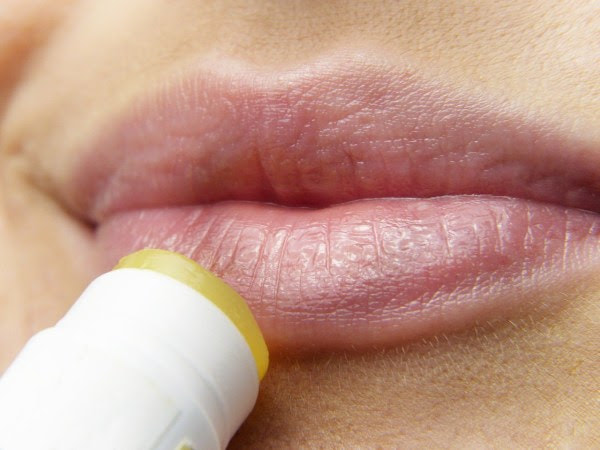

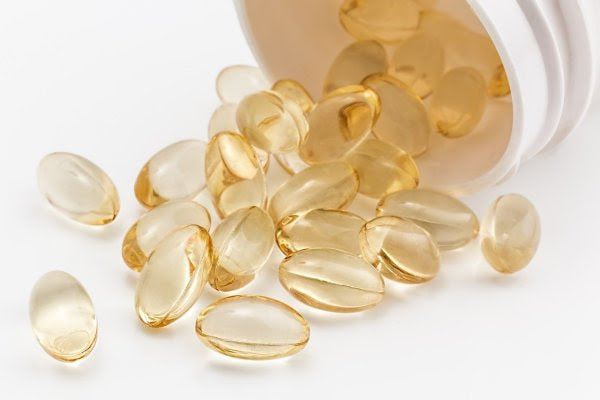

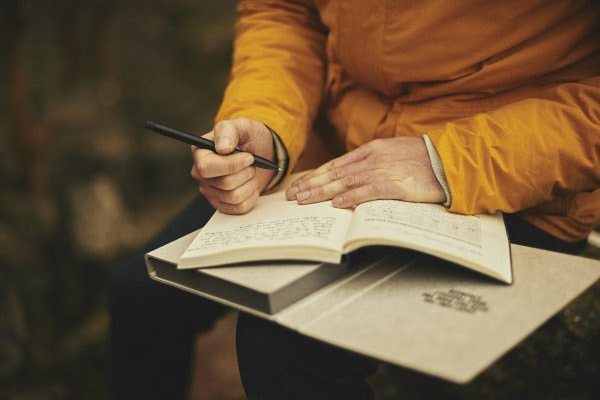

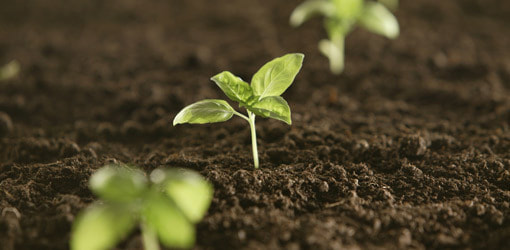
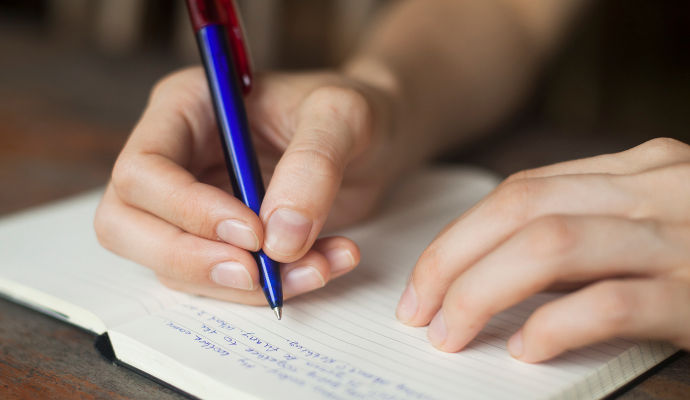

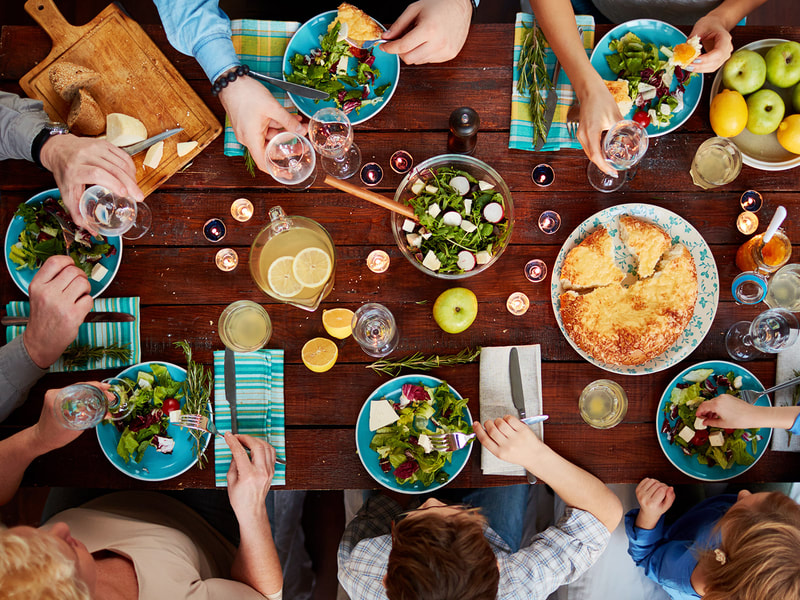
 RSS Feed
RSS Feed